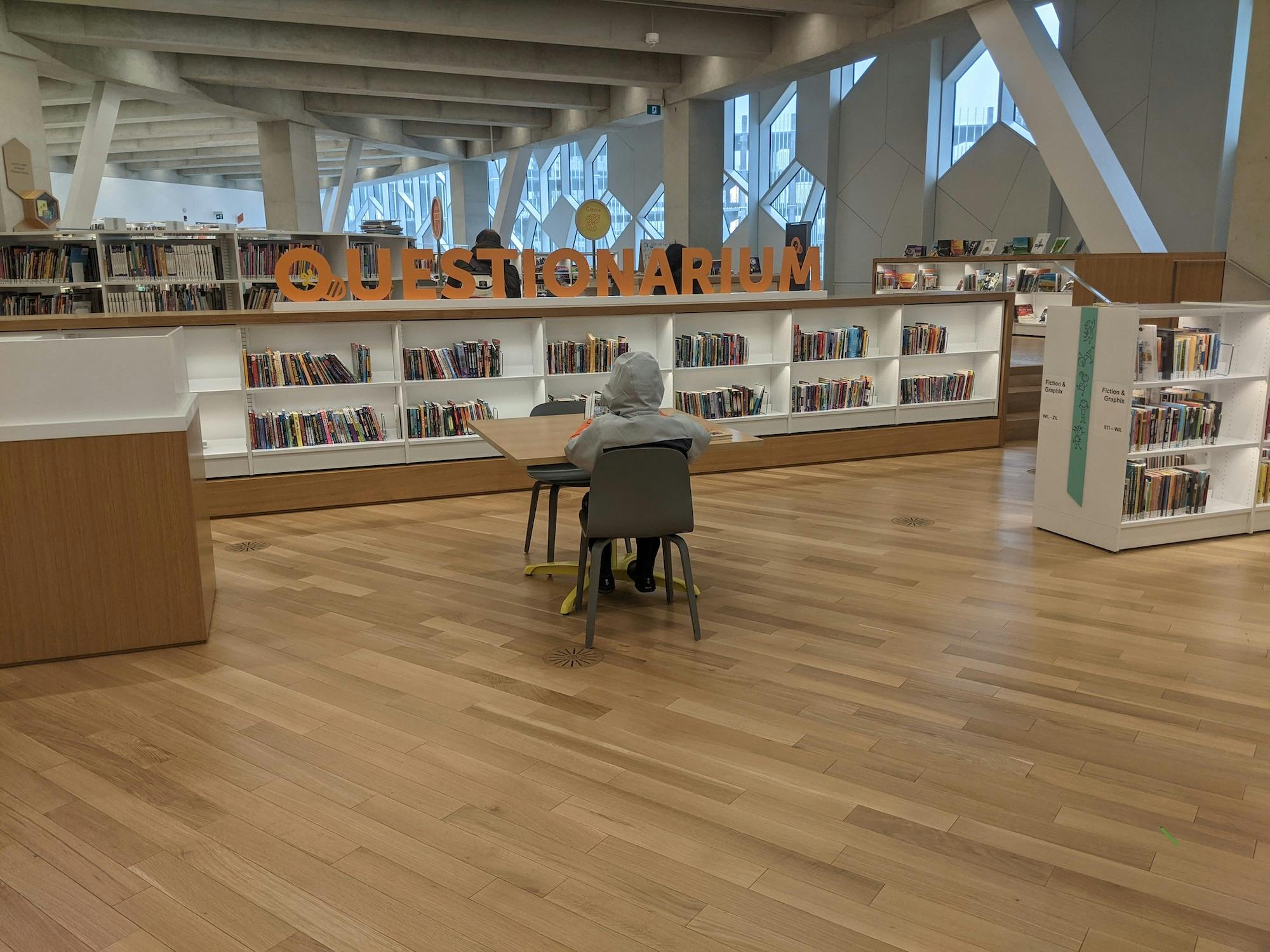Steacy Pinney is the CEO of Calgary Reads. Calgary Reads is a Champion of the Enough for All strategy. They provide children with the essentials to become thriving readers.
Since March, the Calgary Reads Children’s Reading Place has been closed. Our colourful, heritage house in Inglewood couldn’t host families and groups. Usually, we’re busy engaging adults and children in fun literacy-building activities and enjoying lots of read-aloud stories.
The pandemic has changed a lot, for all of us. The impact on low-income families in Calgary is even greater. Some children live with housing and food insecurity; parents and caregivers experience unstable employment situations. New Canadians may face language barriers or have limited technology available to support their children with online learning. With schools and libraries closed for months, many children are falling further behind.
Building literacy skills in children is one of the most effective ways to ensure they can achieve their full potential in school and throughout life. Yet, nearly 29 per cent of kindergarten children in Alberta are experiencing great difficulty in one or more areas of development, compared to the Canadian norm. We know that children who struggle to read by the end of grade three may not catch up to their peers and risk low self-esteem and learning challenges.
As we support low-income families in Calgary, we work to lessen the “word gap”. U.S. psychologists Betty Hart and Todd Risley found that poorer children heard 32 million fewer words by age four than those from wealthier families. This difference in language skills is not actually caused by wealth inequality. Rather, it’s caused by the differences in the quantity and quality of the words children hear at home and the amount of encouragement they receive. Newer research shows that the gap is evident in infants; by 18 months, children of economically-disadvantaged parents are six months behind in language proficiency.
To become a successful reader, children also need books of their own. Yet, one in four children in Canada are growing up without books in their homes. Book access at school and home remains inconsistent—disproportionately affecting marginalized children.
The most successful way to improve the reading achievement of low-income children is to increase their access to print. Yet, for children growing up in poverty, books are particularly scarce. Transportation to public libraries (when they’re open) isn’t always safe or reliable or affordable. Low-income parents at our Reading Place schools told us their number one need was books for their children at home.




